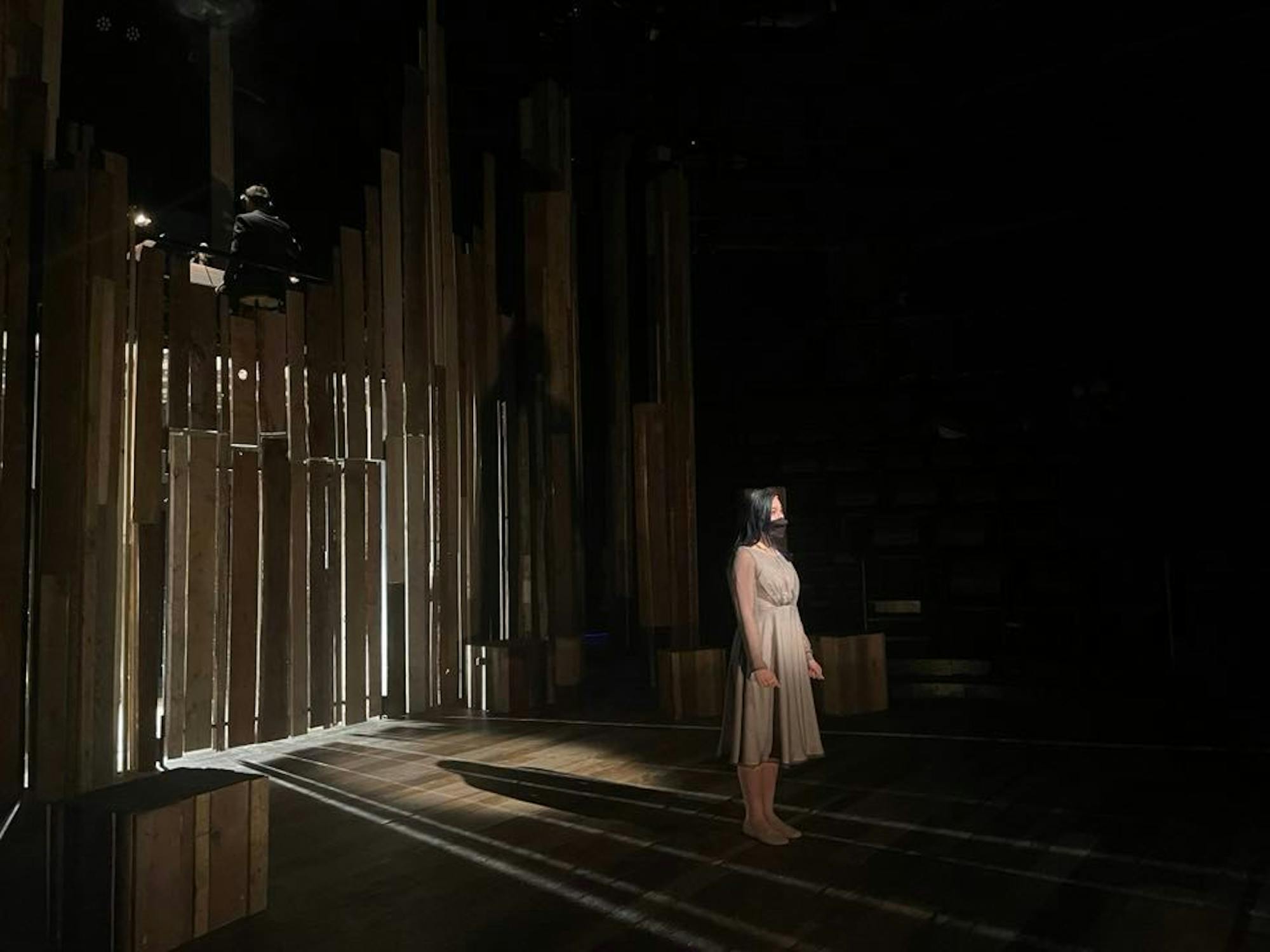Content warning: This article mentions abuse, sexual assault, abortion and suicide.
The Tufts Department of Theatre, Dance, and Performance Studies’ production of “Spring Awakening” (2006), directed by Barbara Wallace Grossman, opened on Friday. With the strong showing of the student-written musical “Almanac” (2021) last semester, audiences were excited to see what the department would do next.
“Spring Awakening” was originally conceived from Frank Wedekind’s 1891 play of the same name, and its translation into a stage musical happened in 2006. Steven Sater and Duncan Sheik’s rock-based score beautifully captures the struggles and lives of the young people around whom the show is centered.
Adversaries of musical theater often default to saying, “I don’t know why these characters begin to sing.” However, “Spring Awakening” is an exemplar of how libretto and score can fuse together in a cohesive and compelling narrative. A bildungsroman in its own right, the musical craftily and seamlessly invites audiences to think about youth tragedy and hardships.
With serious subject matters such as sexual abuse, suicide and teen pregnancy, any production of “Spring Awakening” requires careful attention and dedication to detail. This production, which was performed in the Balch Arena Theater, occurs in a very intimate setting that lends itself well to the subject matter of the show. There are many moments where the audience feels the emotional conviction of the performance due to physical proximity alone. This, combined with the wholeheartedness of the show’s ensemble, works well to deliver this emotional and heavy material. In particular, the Act I finale “I Believe” captivates the audience, who become surrounded by the intensity of the show’s midpoint climax.
Moreover, this production finds a remarkable strength in being an ensemble piece. Although it has a relatively small cast for a musical, the ensemble boasts no weaknesses. The vocal prowess of the show’s ensemble numbers, as in the case of Act II standout “Totally Fucked,” is spectacular. Similar praise is due for the ensemble’s performance of “Touch Me.” As the ensemble continues to shine with a delightfully full sound, the audience’s attention turns to sophomore soloistKen Crossman. This is a standout moment in the show from an exceptionally gifted vocalist and performer. The ensemble also executes Amelia Estrada’s often breathtaking choreography with a keen dedication to making each move intentional.
Some performers in this production accept the challenges their roles require and exceed expectations — all while making it look effortless. In particular, Emma Downs' Wendla, Jill Albertson's Ilse and Thomas Gatzke's Ernst are captivating. They display complex yet compelling goals and motivations for their respective characters. No bit of dialogue or line of singing is ever unconvincing. Naysayers of musicals ought to beware; they masterfully accept the challenge of justifying the inclusion of songs in musical theater. These performers also exhibit excellent vocal control throughout the show, allowing the show’s most vulnerable moments to get the sensitivity and weight that they need. Notably, Albertson performs“Blue Wind” and the scene that follows it with beautiful and honest care to her character.
The production design works well overall; however there are moments in the show where subtleties and beats seem to be muddled by technical elements. Some sightlines are obstructed by the set’s large wooden pillars that cover portions of the stage. This blocks certain audience members from seeing performers at times. Additionally, some lighting cues feel out of place in conversational scenes. This feels as though attention is being called to the lighting design as opposed to the characters and the greater story of the show.
However, the show’s production design still gives audiences spectacular moments. The light plot lets silhouettes cast beautiful shadows and lets rock songs feel like a rock concert. Meanwhile, the set design remains subtle yet imaginative, successfully subduing the mind to imagine these settings in a provincial German town in the 1890s.
At the heart of every great musical is great music. Special credit is due to the orchestra pit of “Spring Awakening.” Under the direction of Matt Torres and Stephanie Rifkin, the pit, which is not actually in a pit but is rather above the stage, captures all of the necessary emotional changes the score requires. From beautiful ballads to raging rock and back again, the pit eloquently executes each song with a diligence that audiences will come to expect of this production.
Overall, audiences who were lucky enough to snag tickets to the sold-out production are in for a beautiful, poignant and timely work of musical theater that showcases some of the best talents that Tufts has to offer.






